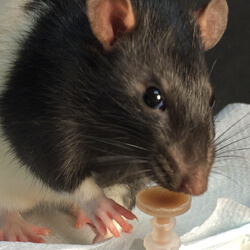
Snapshot of neuronal activity in a normal, healthy mouse (left) compared to a mouse genetically modified to mimic schizophrenia (right). Credit: Attila Losonczy/Columbia’s Zuckerman Institute
A team of Columbia scientists has found that disruptions to the brain’s center for spatial navigation—its internal GPS—result in some of the severe memory deficits seen in schizophrenia. The new study in mouse models of the disorder marks the first time that schizophrenia’s effects have been observed in the behavior of living animals—and at the level of individual brain cells—with such high-resolution, precision and clarity...
Read More






Recent Comments